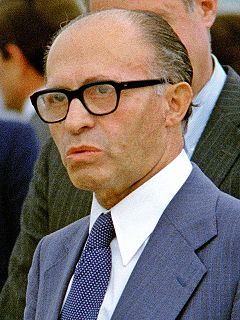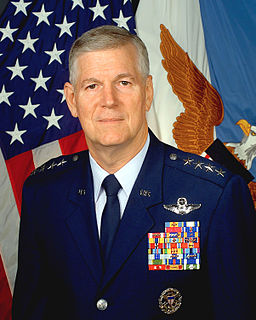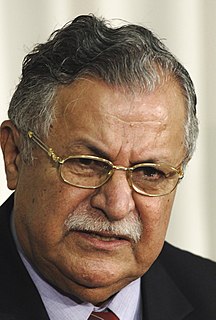A Quote by Zalmay Khalilzad
The feeling of being an Iraqi unites all ethnic groups within this country. Even the Kurds, who have traditionally pushed for their own state, see the benefits of the current situation. They enjoy an autonomous status in Kurdistan, while at the same time participating in decisions in Baghdad. But if neighboring states were to push for a partition of Iraq, it would be a horrible mistake.
Quote Topics
Related Quotes
I do believe that the Kurds are in a difficult situation. They do have some American support. How consistent that will be is unclear. But they have built up a strong military, and they have begun to build the institutions of an autonomous life in Northern Syria. Turkey's enmity towards the Kurds and their desire to make sure there is no independent Kurdish state or even really autonomous enclave is going to push the Kurds into Bashar Assad's hands over time.
The Kurds had always had a bad time. They were oppressed by the Ottoman empire. Then, at the end of the First World War, they were promised a homeland, but the new Turkish state refused to give them any land, while the British went and created the new state of Iraq and sent aircraft to bomb the Kurds there into submission.
Even under the British there were hostile groups. There were clashes. But, as we found out later, these were clashes provoked by those who had no wish to let us live together - on the eve of the Partition. The policy of keeping us divided was always followed by foreigners, even after the Partition. If Indians and Pakistanis had been together...I don't say as confederated countries but as neighboring and friendly countries...like Italy and France, for example ...believe me, both of us would have progressed much further.
In Iraq #1 we stayed within U.N. mandates, limited our response, went home after Kuwait was freed - and were censured for allowing Shiites and Kurds to be butchered and not going to Baghdad when the road was open and the dictator tottering. In Iraq #2 we removed the tyrant at less cost than the liberation of Kuwait during the earlier war, stayed on to ensure freedom and fair representation for various groups - and are being castigated for either using too little force to ensure needed order or too much power that stifles indigenous aspirations and turns popular opinion against us.
The Kurds know that they won't achieve their own state by force of arms but through international recognition. And they have certainly heard what the German foreign minister said in connection with the arms deliveries: There is no Kurdish state. But that shouldn't prevent the Kurds from continuing to develop their own institutions. Still, the best thing for them would be to remain a part of Iraq, but in return we must treat them with respect - their nationality, their language and their culture.
We're dealing with such enormous problems today that we have no other choice but to work together. If Iraq fails, if a religious civil war breaks out and the neighboring states are drawn into this conflict, if the Kurds declare independence and al-Qaida takes over an entire province - that's when the consequences will be dramatic.
A ritual is the enactment of a myth. And, by participating in the ritual, you are participating in the myth. And since myth is a projection of the depth wisdom of the psyche, by participating in a ritual, participating in the myth, you are being, as it were, put in accord with that wisdom, which is the wisdom that is inherent within you anyhow. Your consciousness is being re-minded of the wisdom of your own life.
First, undoubtedly, there are some people who are coming from Cuba who immediately, or from any other country, benefit. But, what is the difference between that and someone who is coming from Nicaragua, Guatemala, Mexico, etc.? That is, we are simply going to say that someone who comes from another country to the United States - the first five years they're here - they don't qualify for federal benefits. They may benefit from local benefits, state benefits. Those decisions belong to other jurisdictions.



































